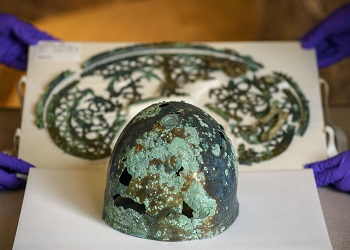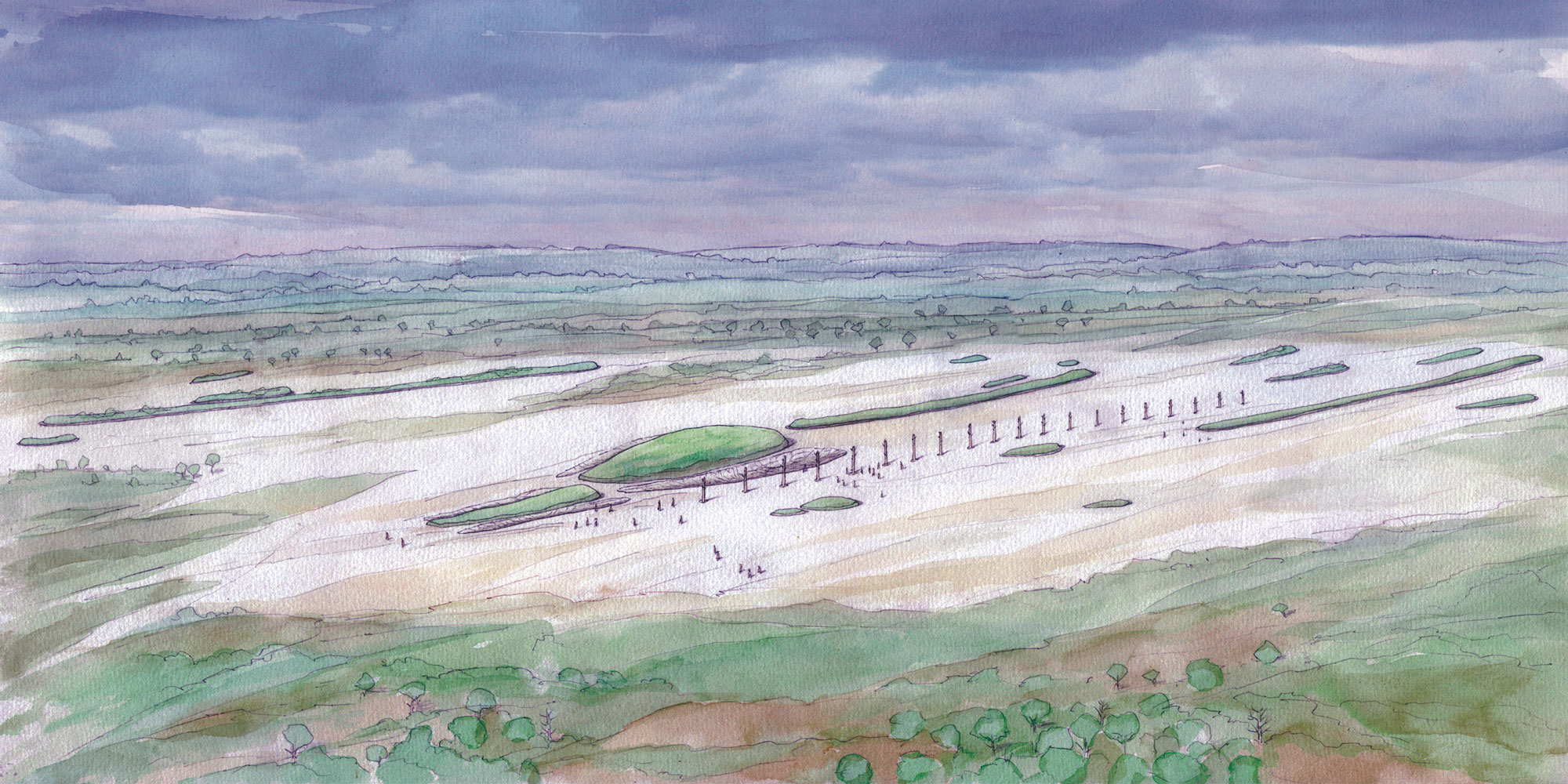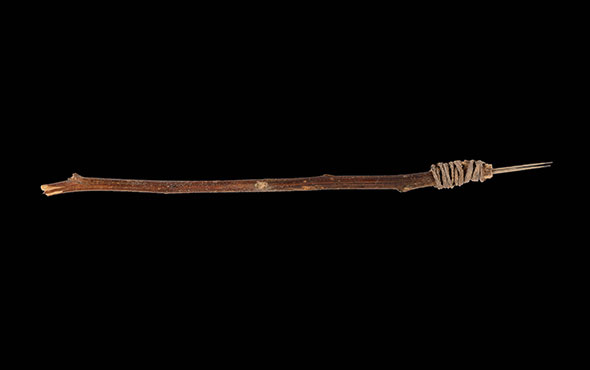
WEST SUSSEX, ENGLAND—Weapons recovered from a richly equipped late Iron Age grave in southern England are now thought to have belonged to a Gallic warrior who resisted the Roman invasion of Britain, according to a report in The Telegraph. Originally excavated in 2008, the warrior's grave contained a helmet topped by a headdress adorned with an intricate bronze openwork crest. Conservation and scientific analysis of the helmet and other artifacts from the burial have yielded important clues about the individual's possible identity. The warrior is thought to have traveled to Britain sometime around the time of Julius Caesar’s attempted conquest of Britain in 50 B.C., explained Melanie Giles of the University of Manchester. “We will probably never know his name, what we know from the archaeology is that he is either someone from eastern England who may have gone and fought with the Gauls,” Giles said, “or he might be a Frenchman himself who flees that conflict.” The warrior’s weapons kit included a bent sword in a decorated scabbard, a spear, and a shield with a large bronze boss. For more on Iron Age warriors, go to "Fate of the Vanquished."











